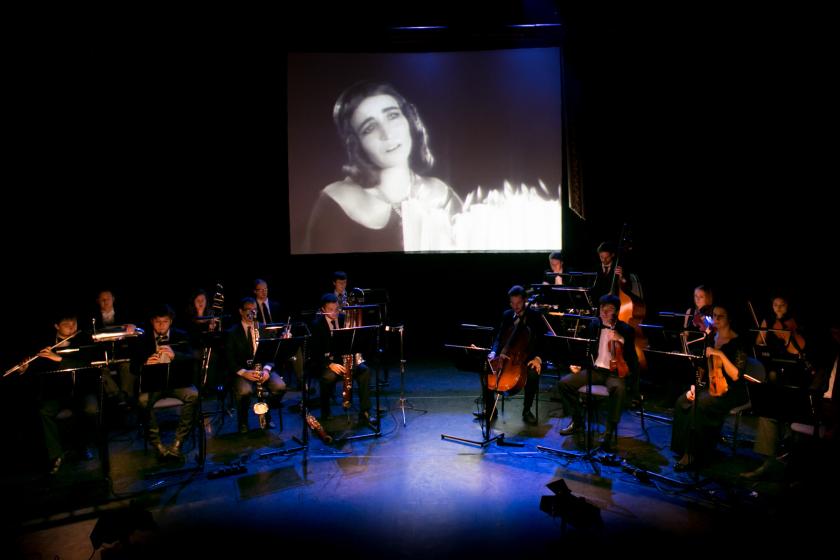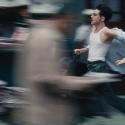At least three composers have set about turning The Fall of the House of Usher into operas, including most famously Debussy, whose abortive attempt, completed by Robert Orledge, was brilliantly staged by Welsh National Opera in June. But there is a good argument that Poe’s story – short on incident and character, long on visual image and atmosphere – lends itself better to film than to the stage. So I was intrigued by the chance of seeing Jean Epstein’s 1928 silent film, complete with a new accompanying score by Charlie Barber, at Malvern’s Forum Theatre, halfway through a tour set up by Barber’s Cardiff-based company, Sound Affairs.
I have no credentials as a cinéaste, so shan’t attempt to discuss Epstein’s work from any technical point of view. I understand that the film survives in various fragmentary forms and that the present version is merely the longest so far reassembled. Poe fans may be irritated that it treats the story with extreme freedom, turning Roderick Usher into a painter, the Lady Madeleine into his wife rather than twin sister, and having the two of them survive the final conflagration that (also inauthentically) engulfs the house.
Luis Buñuel, Epstein’s assistant on the film, is said to have resigned on account of these liberties. But to me they seem of minor importance. The narrative detail (which includes elements from other Poe stories) is secondary to the intense, haunting atmosphere, which Epstein, like Poe, establishes at the outset and which the film never relinquishes until, possibly, the somewhat over-melodramatic and not entirely convincing final moments. I was gripped throughout: gripped by the slow-moving camera-work, the mysterious winds that blow through the doomed house, and the strange animal life around Madeleine’s tomb, gripped by the facial expressions, frozen in genuine horror at things both seen and unseen – something silent film could do and Hollywood apparently can’t. And I was gripped, too, by the music, some of the best I’ve heard by this industrious, resourceful South Wales composer whose most individual work has often been in film and mixed media.
 Barber (pictured right) takes Debussy’s Usher sketches as starting-point for his own score, beginning with the very theme that opens the opera, but then diverging into a free fantasy of his own on certain harmonic figures from Debussy, with a few other melodic details thrown in for good measure. The result – only intermittently Debussian – fits the atmosphere of the film to a tee, without really attempting to match it incident by incident, as the original cinema pianist, watching the film while improvising suitable music, would presumably have been expected to do.
Barber (pictured right) takes Debussy’s Usher sketches as starting-point for his own score, beginning with the very theme that opens the opera, but then diverging into a free fantasy of his own on certain harmonic figures from Debussy, with a few other melodic details thrown in for good measure. The result – only intermittently Debussian – fits the atmosphere of the film to a tee, without really attempting to match it incident by incident, as the original cinema pianist, watching the film while improvising suitable music, would presumably have been expected to do.
Barber’s sixteen players, kept in step by a click track in place of a conductor, clearly relish the dark colourings inspired by Epstein’s morose imagery. The rich sonorities of tuba, trombone and horn dominate, even when the higher woodwind is active; or, when the winds are briefly silent, the cello tends to sing with a particularly melancholy lyricism through the string texture. Barber uses these colour variations, and – less often – tempo variations, to moderate the persistent adagio of the film. Whether one would want to sit and merely listen to this music for an hour might be doubtful. That it enhances the experience of the film is beyond question.















Add comment